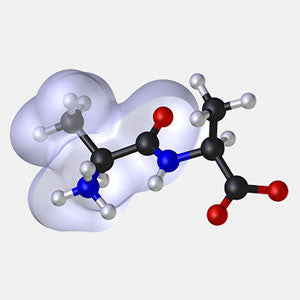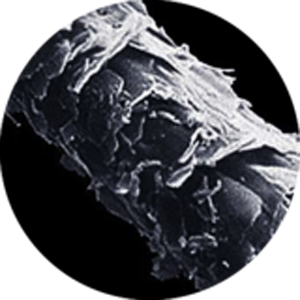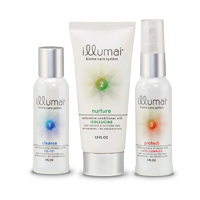Is it Dandruff or Dry Scalp?

Both dandruff and dry scalp are skin conditions. Our skin is a living organ with several functions, two in particular are important to understanding why your scalp might feel tight, itchy or irritated. One is to regulate the body’s hydration and keep our internal organs and systems from drying out. The other is to permit us to live in harmony with beneficial bacteria, fungi, and other microbes that come into contact with our skin. To accomplish these functions, the skin produces natural oils (lipids) that prevent water loss through our skin and peptides that keep the microbes in a healthy balance. This system of skin, hair, glands and the natural substances produced by those glands and is known as the dermal biome. When our biome is healthy, these protective substances are constantly being renewed.
Can you relate to any of the following scalp problems?
- Tight scalp
- Itchy
- Flakes
- Doesn’t feel clean
- Sore/irritated scalp from scratching
If so, you may suffer from dry scalp or dandruff. But which is which?
What Causes Dandruff
Many people mistake common dry scalp for dandruff. Dandruff is likely not caused by dryness, but by an overproduction of oil in the scalp, which creates an overgrowth of harmless yeast that feeds on excess oil and skin cells. Your age, sex, diet and certain illnesses can be culprits. Unlike dry scalp, not shampooing enough or sensitivity to some hair products can be major factors contributing to dandruff.
Dandruff is a common chronic scalp condition marked by a flaking of the skin on your scalp. Though it can be embarrassing and difficult to treat, using a gentle cleanser or medicated shampoos can control it.
If you have dandruff, it can be controlled with medicated shampoos such as:
- Zinc pyrithione shampoos contain an antibacterial and antifungal agent that can reduce dandruff-causing fungus on the scalp.
- Coal Tar-based shampoos help conditions such as dandruff, seborrheic dermatitis and psoriasis by slowing the process where skin cells die and flake off.
- Salicylic acid shampoos help eliminate scale, but they may dry out your scalp, leading to more flaking.
- Selenium sulfide shampoos slow the death of skin cells, but be warned, they can discolor blond, gray or chemically colored hair.
- Ketoconazole shampoos are a broad-spectrum antifungal agent that may work when other shampoos fail.
What Causes Dry Scalp?
Before you reach for any of those medicated options, be sure to rule out dry scalp, first. Many factors can lead to dry scalp, which is a lack of moisture in the skin and can be caused by using harsh cleansers, cold weather, and hair product build-up. These factors, coupled with the mistaken assumption that you have dandruff, can lead to use of medicated cleansers you don't need, which contribute to an irritated, dry scalp rather than solving it.
Why Most Standard Hair Care Products Frustrate People with Dry Scalp
Most of the shampoos currently on the market use harsh cleansers, usually sulfate or sulfate-like chemicals. These cleansers do such a good job of cleaning that they strip away the beneficial natural oils (waterproofing lipids) and the protective proteins along with the grime that they are intended to deal with. As a result, the scalp can no longer retain moisture, making it feel dry. In this condition, you scalp can’t defend itself from harmful microbes. To deal with these bad microbes, the scalp begins to shed its uppermost layers, like the bark on a tree, in an attempt to get rid of these unwanted inhabitants. The hair follicles aren’t particularly happy, either. They respond by shutting down and slowing hair growth. Eventually, the follicles can become inflamed. It’s not a pretty picture when you see what’s really happening on a dry scalp caused by harsh cleansers.
Tips For a Healthy Scalp
- If you’ve been using medicated shampoos without success for what you thought was dandruff, take a break and try a more gentle shampoo.
- Try switching to a sulfate-free shampoo.
- Cut back on the use of styling products and try blow-drying less frequently.
- Shampoo less frequently and brush with a soft bristle brush between washings.
- If simple lifestyle changes don’t make a difference, then you need to visit with your dermatologist.
Learn More . . .

What are Sulfates? And Why Should You Care if a Shampoo is Sulfate-Free?
Sulfates, such as sodium lauryl sulfate (SLS), are chemicals used to create strong detergents. Because they are such efficient cleansers and degreasers, sulfates are commonly used in manufacturing and construction industries to clean heavy machinery.

The No Poo Method: What You Need to Know


